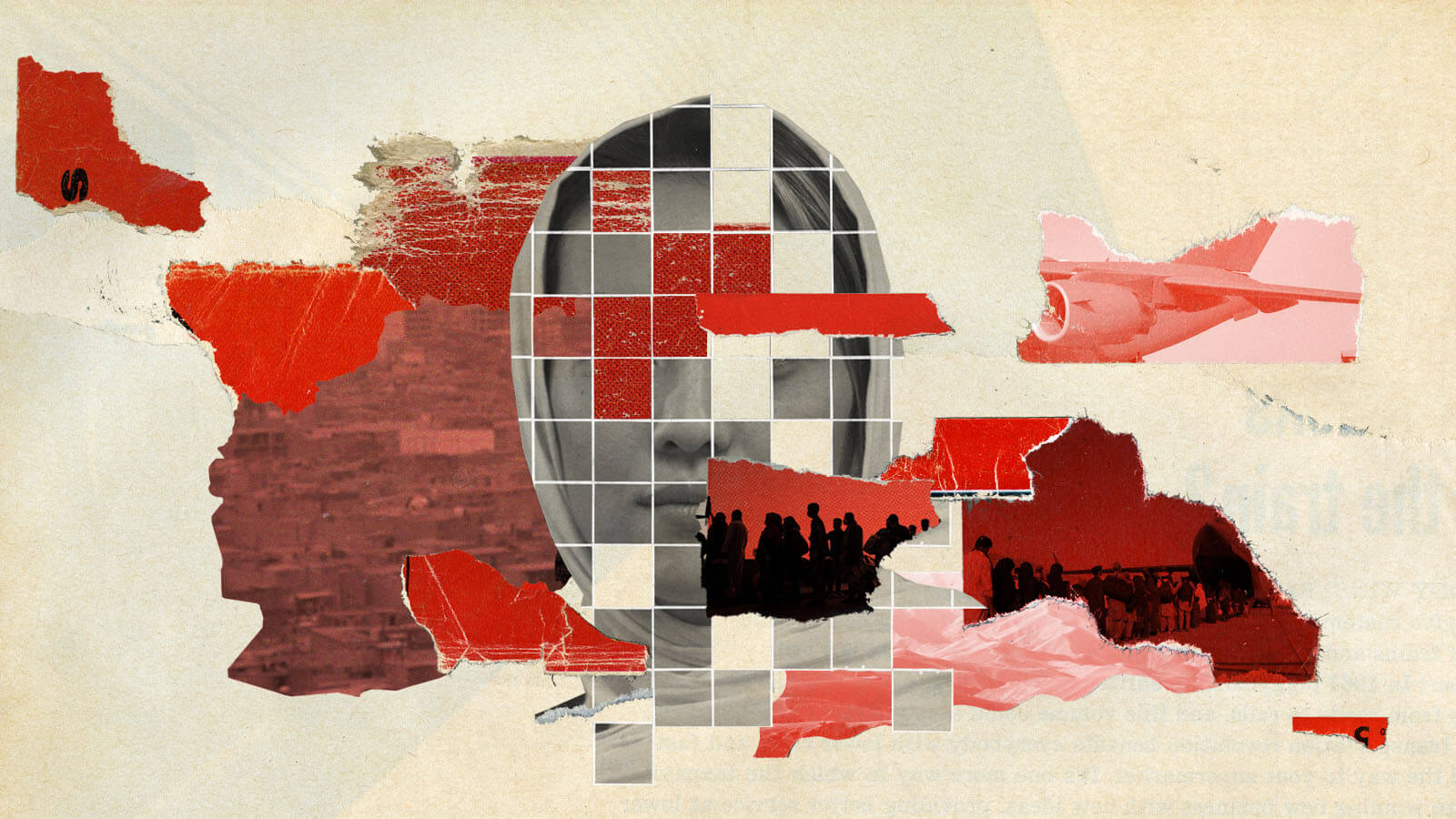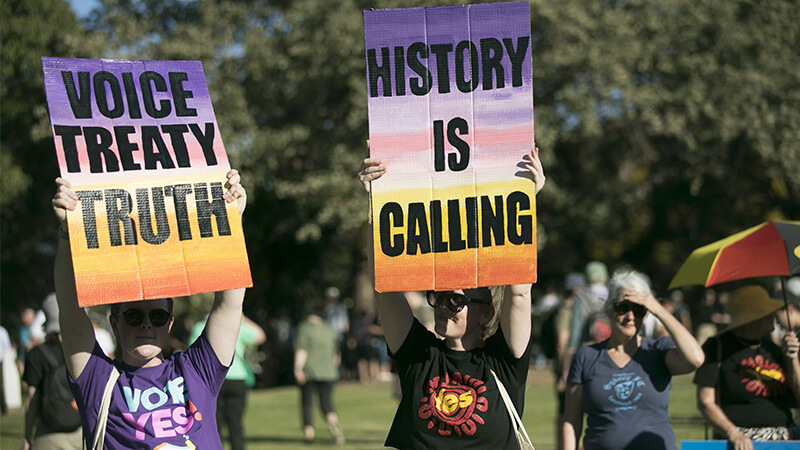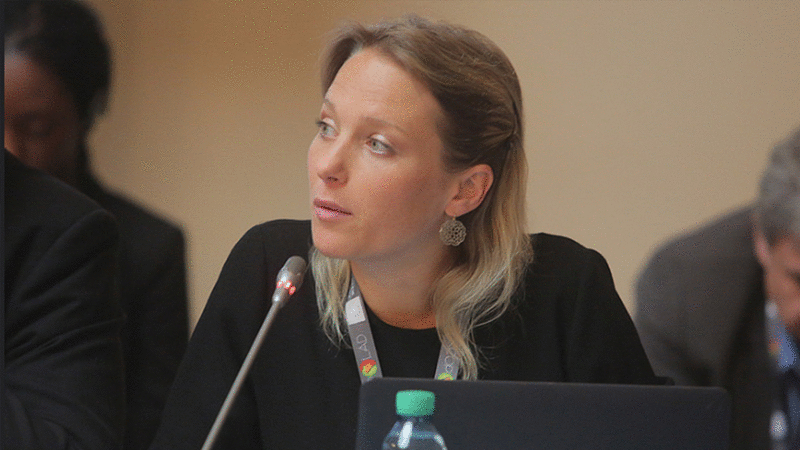“What Keeps Me Awake At Night Is Those Who Are Left Behind”
When, in April 2021, President Joe Biden announced his imminent intention to withdraw all US troops from Afghanistan, everyone knew that the country was on a countdown to a full takeover by the Taliban. Two months before the militant Islamist movement swept into power following the Western forces’ final exit on 31 August 2021, I was at home in New York when I received the phone call that would turn my life upside down.
My friend and fellow activist John Dautzenberg asked if I’d be the financial sponsor on a visa application for two young Afghan girls and their grandmother. The girls’ mother, a USAID project director and a named target of the Taliban, was already in America and frantic to get her family to safety. Despite official pledges to evacuate families whose association with the US government put them at risk, their previous visa applications had been refused. I’d sponsored visa applications before, it seemed like an easy ask, so of course I said I’d help.
By early August, word had got around that I was launching an evacuation effort, and my phone started ringing more frequently. People I’d worked with in crisis situations over the years would ask, ‘Are you involved in this? Because if you are, I have five people who really need to get out…’ As the requests rolled in, it became clear I needed to assemble a team.
By mid-August the international coalition’s only remaining stronghold was the airport. The Taliban controlled the streets. At this point, there was no hope of getting the girls out unless I got on a plane and got them myself.
As there were months of notice prior to the US withdrawal, it would be fair to expect a military-efficient system of evacuations. Instead, when I landed at Kabul there was total mayhem and panic. I’ve worked in conflict zones including Syria and Somalia but nothing compares to the scenes of chaos at the airport. Desperate crowds were left to fight it out with each other at the airport gates. Having a visa was no guarantee of departure – if your name wasn’t also on a US military list held by a soldier at one of the airport gates, you weren’t getting in. And it was anyone’s guess which soldier, at which gate, held the precise list your name was on.
The girls I was trying to evacuate – the youngest just three years old – and their grandmother were in the midst of this mayhem. By now they had their travel permits and authorisation to board a US military flight, but each day they would join the human crush at the gates, only to be turned away. Days of this took their toll. The youngest girl collapsed with dehydration and needed life-saving intravenous fluids at the hospital. Their grandmother, facing exhaustion and despair, decided enough was enough and she would rather die than face the airport crush again. We convinced her to try one more time.
“Frantic phone calls and texts drawing on every contact I’d ever made in governments and aid agencies all around the world finally paid off”
The US military option was clearly not going to work. Frantic phone calls and texts drawing on every contact I’d ever made in governments and aid agencies all around the world finally paid off. Just as everyone was losing hope, on 27 August 2021, four days before the last US troops left, we were able to join a Ukrainian evacuation effort. By then, my two girls and their grandmother had grown to a group of 135 people.
You might ask, why Ukraine? Well, it wasn’t a war zone back in August and I’ve also learned that the quickest way to get people to safety is generally through any country that will take them. For the most part, it’s a transit country, as in this case where the girls spent just a few nights in Ukraine to reunite with their mother before onward travel to Albania. The real work of getting asylum to the United States, Canada or Europe comes later. I’ve evacuated people through Kazakhstan, Iran, Albania, Greece and Georgia, either as a transit to another location or looking for permanent asylum.
I’m constantly asked how I am able to do this work. One possible reason is that I can keep a cool head while all around me is chaos. But when I witnessed the girls reunite with their mother in the Ukrainian capital Kyiv, I just broke down and cried.
Sadly there wasn’t much time for reflection. The morning we touched down, my phone rang again. A number of female parliamentarians needed to get out of Afghanistan quickly. Could I help? To date, my team and I have evacuated 1,500 vulnerable Afghans out of the country. We’ve chartered private planes, secured seats on commercial flights, and hitched rides on government-chartered planes.
“Heartbreakingly, I still get 200 messages a day from people, saying: ‘Dear Rescue Man...’ What choice do you have but to help?”
And it’s a long way from being over. Heartbreakingly, I still get 200 messages a day from people, saying: ‘Dear Rescue Man...’ It’s sometimes easy to ignore what you see on the news, but when people whose lives are in danger are calling and texting you 24 hours a day, what choice do you have but to help? The volume is far more than I can cope with, so difficult as it is, I have to prioritise. I focus on people who have no future in the current Afghanistan. If you are a female police officer or pilot, what are you going to do in this Afghanistan? Nothing. There’s no future for you.
Now what keeps me awake at night is those who are left behind. We may have saved 1,500 lives, but it’s a drop in the ocean compared to those who are going to be lost as the emergency in Afghanistan gets worse and worse, week by week. Virtually the whole country now faces famine. The economy has imploded. And so much responsibility for this catastrophe lies firmly at the feet of the West.
As the Taliban rolled into Kabul last August, the Western funding that constituted three quarters of the entire national budget disappeared as quickly as the US troops. With it went the salaries of teachers, civil servants and doctors. At least $9.5 billion of Afghan assets in US banks was frozen, leaving the country with no functioning banking system. Businesses can’t withdraw money to pay for supplies or salaries. Families can’t access their own savings to pay for food. There is literally no cash in the banks. There are reports of families so desperate they are selling their kidneys to buy food. Some have resorted to selling their young daughters into marriage. It really is hell on earth.
According to the World Food Programme (WFP), 23 million Afghans – more than half the population – are not getting enough food. David Beasley, head of the WFP, told the BBC in November 2021 that this is “the worst humanitarian crisis on Earth”. In January 2022, the United Nations launched a $5 billion appeal, its largest single country appeal ever. It warns that a million children are at risk of dying imminently.
“No one is condoning the Taliban’s vile oppression of women and abuses of human rights, but we cannot make humanitarian support conditional”
It is grimly ironic that Afghan civilians are being punished twice. First, by being ruled by the Taliban in all their fanatical brutality, and second by the US and Western allies for living under this regime. Let’s be clear: sanctions that are meant to target the Taliban are actually driving millions of ordinary people to starvation. No one is condoning the Taliban’s vile oppression of women and abuses of human rights, but we cannot make humanitarian support conditional. Millions of lives are on the line.
President Biden pledged in August that the US withdrawal from Afghanistan would not mean the end of US support to the Afghan people. As the country teeters on the brink of mass famine because of American sanctions, these look like hollow words. So what are the urgent measures Biden must take?
- Unfreeze foreign reserves so that Afghan citizens can access money to pay for food, and businesses can pay employees.
- Apply sanctions that target bad actors rather than institutions. Allowing children to starve is not punishing the Taliban.
- Increase aid money as a matter of utmost urgency and give banks the legal clarity to allow aid agencies to access cash.
- Communicate these changes to sanctions very clearly so that banks are not worried about repercussions from the US Treasury.
- Fast-track asylum applications of Afghans living in limbo around the world and provide safe passage for those most at risk within Afghanistan.
I’ve learned the hard way that governments are hopeless at being proactive. But they do react to pressure – and that’s where we come in.
Here are 5 ways we can all make a difference right now
- If you have a lot of money, fund your own evacuee charter plane. I can help with this! Get in touch with me at the email address below.
- Use your voting power. Write letters to your elected representatives.
- Make phone calls. Call the local media. Don’t let this issue die along with the Afghan people.
- If you are at school, either as a pupil or a teacher, organise your class to write to your elected representative requesting they support an asylum application for a female teacher or activist from Afghanistan. I can help pair you up.
- Donate to the United Nations Afghanistan Humanitarian Fund.
The clock is ticking. Let’s get to work.
Amed Khan is a human rights advocate, political activist and philanthropist. If you would like to contribute to the evacuation effort in Afghanistan or you could benefit from advice on how to develop your own citizen activist plan, get in touch with Amed at [email protected]




